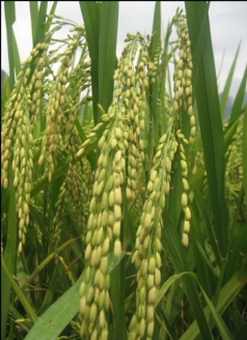|
||||||
|
|
|||||
| IPRs ENFORCEMENT MEASURES AVAILABLE IN VIETNAM | ||||||
|
Enforcement of IPR in Vietnam may involve either the courts or the administrative authorities. Court actions take more time and money, but they can award damages that compensate IPR holders, whereas administrative authorities can exercise specific powers of inspection and punishment that may include confiscation and destruction of infringing goods, orders and fines. IPR holders, before taking official actions, may take informal actions such as sending a warning letter to alleged infringers and approaching them for voluntarily desisting from infringement. Administrative Measures
Although substantial compensation for IPR infringement is only available under the civil measures, and not administrative measures, administrative measures remain the most commonly used means of enforcing IPR in Vietnam due to being speedy and low cost. The administrative authorities who have the authority to handle administrative violations upon request from IPR holders are: 1. The Inspectorate for Science and Technology (IST), handling administrative violations which are committed in production, trading, exploitation, advertisement or circulation, except for violations in the import or export of goods; 2. The Market Management Bureau (MMB), handling violations which are committed in the circulation of goods and commercial business in the market; 3. The Customs Offices, handling violations that are committed in the import and export of goods; 4. The Police, having the competence to detect, verify, gather information and evidence on violations, and notify them to the violation-handling authorities and handle violations; and 5. The People's Commitees at local levels, handlingviolations which are committed in their respective localities whereby the sanctioning levels, forms and handling measures applicable to those acts fall beyond the competence of the IST, MMB and The Customs Offices. The acts of IPRs infringement, under Vietnam IP law, may be subject to the administrative remedies are: 1. Infringing IPRs causing harm to authors, owners, consumers or the society; 2. Producing, importing, transporting or trading counterfeit goods, or assigning others to perform those acts; and 3. Producing, importing, transporting, trading, storing labels or articles bearing a counterfeited trademark or a counterfeited geographical indication, or assigning others to perform those acts. The main administrative remedies are warnings and monetary fines. Depending on the nature and seriousness of the infringement, the additional remedies may include confiscation of counterfeit goods, materials and means used mainly for production or trading of such counterfeit goods, and suspension for a limited term of relevant business activities. In addition to the said remedies, the infringer may also be subject to one or several of the remedies for overcoming consequences, which are: 1. Compelling destruction or distribution or use for non-commercial purposes of counterfeit goods as well as raw materials, materials and means used mainly for production or trading of such counterfeit goods, provided that such destruction, distribution or use does not affect the exploitation of rights by IPR holders; and 2. Compelling transportation out of the Vietnamese territory of transit goods infringing upon IPRs or compelling re-export of counterfeit goods, as well as imported means, raw materials and materials used mainly for production or trading of such counterfeit goods, after infringing elements are removed from such goods. A request for applying administrative measures including documentary evidence of ownership of the infringed IPR and prima facie evidence of infringement (samples and/or photos of both the infringing and genuine articles) against IPR infringement needs to be filed with an administrative enforcement authority. At or after the time of filing the request for applying administrative measures, in the cases: where the acts of infringing upon intellectual property rights are likely to cause serious damage to consumers or society; where infringement material evidence is likely to be dispersed or infringing individuals or organizations show signs of shirking their liabilities; and where to secure the implementation of decisions on administrative penalties, it is possible to request the administrative enforcement authority to apply the measures for preventing administrative violations, and the measures for securing the application of the sanctionsthat may in the form of temporary custody, temporary detention of infringing goods, material evidence and means, body searches, searches of means of transport and objects, and searches of places where infringing goods, material evidence and means are hidden. If the request for applying administrative measures is acceptable for settlement, the administrative enforcement authority within a period of 3 months may make an official note of the administrative violations, request the termination of administrative violations, and issue a decision on administrative penalties. Past 10 days after infringers receive decisions on administrative penalties, if they do not voluntarily execute such decisions, the persons with the competence of sanctioning administrative violations will issue decisions to coerce the execution. In general, the administrative enforcement authorities may take administrative actions upon receipt of requests from IPR holders or, even in the absence of requests, when the infringement relates to foodstuffs for human and animals, pharmaceuticals, veterinary preparations, fertilizers, plant protection drugs, plant varieties, livestock and counterfeit goods. Border Control Measures Border control measures in relation to IP, under the Customs law and the Intellectual Property law of Vietnam, are applicable for import and export goods, and not for goods of a non-commercial nature and goods in transit. The application of the border control measures for all the IP objects and export goods exceeds the requirements of the TRIPS Agreement. IPR holders have the right to request the Customs Offices to monitor and suspend customs clearance for suspected IPR infringing goods. The request for monitoring and suspending customs clearance for suspected IPR infringing goods includes: evidence of ownership, information and description of the IPR holder’s products and suspected IPR infringing goods, names of exporters or importers of the genuine products, names of exporters or importers that may possibly infringe IPRs, forecast information on the time and place of carrying out customs procedures for suspected IPR infringing goods, and other information concerning importation and exportation of suspected IPR infringing goods. Accompanying the request, IPR holders must deposit a sum of money equal to 20% of the value of the suspected IPR infringing goods, or at least 20 million VND (approximately $1,130) if it appears to be impossible to value such goods. Alternatively, IPR holders can submit a deed of guarantee that is issued by a bank or other authorized credit institution. The time-limit for suspension of customs clearance for suspected IPR infringing goods is 10 working days counted from the date of receiving a notification of the Customs Offices on suspension of customs clearance, and it may be extended for further 10 working days at maximim if the applicant has legitimate excuses and makes further deposits. Upon the expiration of the time-limit for suspension of customs clearance, if the applicant fails to initiate civil proceedings and no administrative measures are applicable to exporters or importers, the suspected IPR infringing goods will be released. Information about protected IPRs maybe recorded with the Customs Offices for monitoring inward and outward counterfeit goods. For this purpose, copies of IPR registrations are normally required by the Customs Offices. Civil Measures
IPR holders, under the Intellectual Property law and the Civil Procedure Code of Vietnam, have the right to initiate legal proceedings to protect their legitimate rights and interests before the People’s Courts including the Supreme People’s Court, People’s Courts of provinces and cities directly under the central authority, and People’s Courts of districts, towns, and cities directly under the provincial authority. The courts of the first instance deal with the cases concerning IPR infringements and disputes, where one of the parties to the cases is foreign, are People’s Courts of provinces or cities directly under the central authority. Upon or after the initiation of legal proceedings, in order to preserve evidence and to prevent infringements, IPR holders have the right to request the court to apply the provisional emergency measures for the suspected IPR infringing goods, materials and means used for production and trading of those goods. The provisional emergency measures may include: retention; seizure; sealing of premises where the suspected infringing goods are stored; prohibition on the alteration of goods from their current state; prohibition on any movement; and prohibition on transfer of ownership. The court can apply such measures without having heard the arguments of the alleged infringer whose goods and/or related materials and facilities are subject to the measures. However, IPR holders must deposit a sum of money equal to 20% of the value of the goods that are subject to the measures, or at least 20 million VND (approximately $1,130) if it appears to be impossible to value such goods or submit a deed of guarantee that is issued by a bank or other authorized credit institution. The plaintiff (complainant) bears the burden of proving the infringement claimed. In the case a party to a lawsuit against an infringement of IPRs can prove that appropriate evidence proving his/her claims is under the control of the other party and therefore inaccessible, the former has the right to request the court to compel the latter to produce such evidence. Before the court decides to bring the case to a hearing, the court must arrange a conciliation process between the parties. If the agreement is reached by conciliation, the court will recognize the agreement and no longer handle the case. In cases involving IPRs infringements, the court upon IPR holders’ request is empowered to award damages that compensate the IPR holders. Besides the compensation for damages, the court may order the termination of the act of infrinrements of IPRs, public rectification and apology, fulfilment of civil obligations, and the destruction or distribution or putting into use for non-commercial purposes of goods, materials and means used for production and trading of infringing goods, provided that such distribution or use for non-commercial purposes does not affect the exploitation of rights of the IPRs holders. Damages caused by an act of infringement of IPRs, under the Intellectual Property law of Vietnam, include: 1. Physical damages including loss of property, decrease of income and profits, loss of business opportunities, reasonable expenses for prevention and remedy of such damages; and 2. Spiritual damages including loss of honor, dignity, prestige, reputation and other spiritual damages caused to the authors of literary, artist and scientific works; performers; the authors of inventions, industrial designs, layout-designs and plant varieties. The court, according to Inter-Ministerial Circular No. 02/2008 Providing Guidelines on a Number of Articles of the Laws in the Resolution of Disputes on IPRs in the People’s Court, in the process of handling IPRs cases, is empowered to seek opinions from the National Office of Intellectual Property, the Copyright Office of Vietnam, local Departments of Culture and Information, local Departments of Science and Technology, and Vietnam Internet Centre. If the court deems that a case may constitute a criminal act, the court will inform and transfer the relevant dossier to the People’s Procuracy to determine whether to handle the case criminally. Criminal Measures
An act of infringement of IPRs, under the Intellectual Property law of Vietnam, is punishable by either administrative or criminal remedies depending on the seriousness of the act. Inter-Ministerial Circular No. 01/2008 of the Supreme Court, the Supreme People’s Procuracy, the Ministry of Police and the Ministry of Justice Providing Guidelines on Criminal Liabilities for Acts of IPRs Infringements provides that criminal liabilities are applied to acts of copyright infringement, and trademark and geographical indication counterfeiting where they are on a commercial scale and cause “a serious consequence” or “a very serious consequence” or “a extremely serious consequence”. The criminal sanctions include monetary fines and/or reeducation without detention and/or imprisonment and/or prohibition of practising that may be applicable to infringers, and seizure, forfeiture and destruction of the infringing goods and any materials and means used mainly for production or trading of such goods. |
||||||
|
||||||
|
||||||
|
||||||


